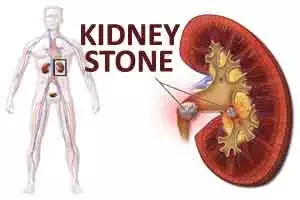- Home
- Medical news & Guidelines
- Anesthesiology
- Cardiology and CTVS
- Critical Care
- Dentistry
- Dermatology
- Diabetes and Endocrinology
- ENT
- Gastroenterology
- Medicine
- Nephrology
- Neurology
- Obstretics-Gynaecology
- Oncology
- Ophthalmology
- Orthopaedics
- Pediatrics-Neonatology
- Psychiatry
- Pulmonology
- Radiology
- Surgery
- Urology
- Laboratory Medicine
- Diet
- Nursing
- Paramedical
- Physiotherapy
- Health news
- Fact Check
- Bone Health Fact Check
- Brain Health Fact Check
- Cancer Related Fact Check
- Child Care Fact Check
- Dental and oral health fact check
- Diabetes and metabolic health fact check
- Diet and Nutrition Fact Check
- Eye and ENT Care Fact Check
- Fitness fact check
- Gut health fact check
- Heart health fact check
- Kidney health fact check
- Medical education fact check
- Men's health fact check
- Respiratory fact check
- Skin and hair care fact check
- Vaccine and Immunization fact check
- Women's health fact check
- AYUSH
- State News
- Andaman and Nicobar Islands
- Andhra Pradesh
- Arunachal Pradesh
- Assam
- Bihar
- Chandigarh
- Chattisgarh
- Dadra and Nagar Haveli
- Daman and Diu
- Delhi
- Goa
- Gujarat
- Haryana
- Himachal Pradesh
- Jammu & Kashmir
- Jharkhand
- Karnataka
- Kerala
- Ladakh
- Lakshadweep
- Madhya Pradesh
- Maharashtra
- Manipur
- Meghalaya
- Mizoram
- Nagaland
- Odisha
- Puducherry
- Punjab
- Rajasthan
- Sikkim
- Tamil Nadu
- Telangana
- Tripura
- Uttar Pradesh
- Uttrakhand
- West Bengal
- Medical Education
- Industry
Researcher finds a promising new target for kidney stones and UTIs

The study findings may be used to develop better therapies for diseases that are related to lower urinary uromodulin levels, such as urinary tract infections and kidney stones, as well as for those linked to higher kidney uromodulin levels, such as chronic kidney disease and hypertension.
Japan: The secretion of uromodulin protein into urine can be induced by treatments that may protect against urinary tract infections and kidney stones, among other diseases, suggests a recent study in the journal Hypertension.
The normal function of uromodulin, a protein that is made in the kidney and secreted into the urine, remains largely unknown. However, higher levels of uromodulin in the urine are related to lower rates of urinary tract infections and kidney stones, while higher levels of this protein in kidney cells are associated with higher rates of hypertension and chronic kidney disease. Researchers from Japan have now uncovered how uromodulin secretion into the urine can be increased by the hormone vasopressin--a finding that may have many practical applications.
In the study, researchers from Tokyo Medical and Dental University (TMDU) revealed that vasopressin receptor stimulation leads to the short-term secretion of uromodulin into the urine in mice. They found that this occurs via the protein kinase A pathway, a common cell signaling pathway that is dependent on cyclic adenosine monophosphate (cAMP) levels, in kidney cells.
Most of our knowledge about the role of uromodulin in disease comes from genetic studies. Notably, uromodulin secretion into the urine seems to be particularly important for disease prevention, but little is known about how this secretion might occur. Researchers at Tokyo Medical and Dental University (TMDU) aimed to explore this process in more detail.
"The urinary secretion of uromodulin is associated with protection against many common diseases," says lead author of the study Azuma Nanamatsu. "We wanted to investigate how to increase this secretion, to develop better therapies in the future."
To do this, the researchers stimulated vasopressin receptors in mice, which has previously been reported to affect uromodulin secretion. When they saw that the treated mice had higher levels of uromodulin in the urine and lower levels in the kidney, they decided to test the effects of increased cAMP on uromodulin secretion in a kidney cell line, because vasopressin receptor stimulation leads to increased cAMP levels.
"We found that uromodulin was secreted from kidney cells when cAMP levels were increased," explains Takayasu Mori, senior author. "This secretion only happened on the apical cell surface, which normally faces the lumen or external space in the kidney."
The authors then found that this secretion of uromodulin could be decreased by treating cells with a protein kinase A inhibitor. Together, their findings suggest that vasopressin/cAMP/protein kinase A signaling is important for the secretion of uromodulin from kidney cells into the urine.
The findings of this study may be used to develop better therapies for diseases that are related to lower urinary uromodulin levels, such as urinary tract infections and kidney stones, as well as for those linked to higher kidney uromodulin levels, such as chronic kidney disease and hypertension.
Reference:
The study titled, "Vasopressin Induces Urinary Uromodulin Secretion By Activating PKA (Protein Kinase A)," is published in the journal Hypertension.
DOI: https://www.ahajournals.org/doi/10.1161/HYPERTENSIONAHA.121.17127
Hina Zahid Joined Medical Dialogue in 2017 with a passion to work as a Reporter. She coordinates with various national and international journals and association and covers all the stories related to Medical guidelines, Medical Journals, rare medical surgeries as well as all the updates in the medical field. Email: editorial@medicaldialogues.in. Contact no. 011-43720751
Dr Kamal Kant Kohli-MBBS, DTCD- a chest specialist with more than 30 years of practice and a flair for writing clinical articles, Dr Kamal Kant Kohli joined Medical Dialogues as a Chief Editor of Medical News. Besides writing articles, as an editor, he proofreads and verifies all the medical content published on Medical Dialogues including those coming from journals, studies,medical conferences,guidelines etc. Email: drkohli@medicaldialogues.in. Contact no. 011-43720751


